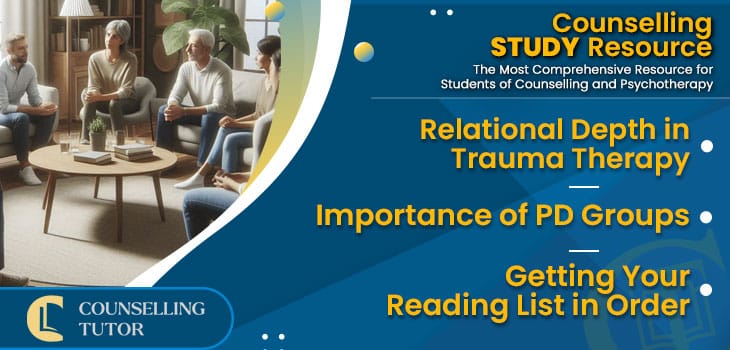See Counselling Skills Used in Real Sessions by Qualified Therapist
Real Sessions – Real Presentations – Real Skills
Gain the competence and confidence to use counselling techniques effectively!

In Episode 310 of the Counselling Tutor Podcast, your hosts Rory Lees-Oakes and Ken Kelly take us through this week’s three topics:
Importance of PD Groups
Relational depth is an important aspect of working with traumatised clients. In this section, Rory and Ken discuss how to build relational depth and its benefits:

Real Sessions – Real Presentations – Real Skills
Gain the competence and confidence to use counselling techniques effectively!
In this week’s ‘Practice Matters’, Rory speaks with Dr Sonja Falck about the importance of PD groups to a qualified practitioner.
The key points of this discussion include:

On-demand access to a rich lecture library covering theory, skills, and professional development for counselling students—Mapped to the UK awarding body criteria
“The Student Library has been BRILLIANT, I can’t recommend it enough!
It has been a lifeline in helping me prepare for practice and my first clients. If you’re considering it, go-for-it, it’s absolutely worth it!”
Kelly – Graduated and now in practice.
Receiving your reading list for the year can feel really overwhelming, but in this section, Rory and Ken discuss some of the ways you can make your list feel more manageable:
Importance of PD Groups

Get on-demand Certified CPD that is implementable in your practice
